
Pope Gregory III established the Solemn Feast of All Saints in the 8th Century, thus Christianising the pagan festivities of earlier times.
In light of this fact some Catholics can be quite contemptuous of the legitimate concerns which Halloween raises today. On the one hand, this includes educated apologists who dismiss such worries as a hangover from fundamentalist Protestantism. On the other, are the numerous pew-punters who, enamoured of popular culture, scoff that it is all just a bit of harmless fun.Â
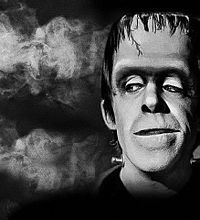
Nevertheless, Halloween is problematic in the context of the spiritual warfare in which all Baptised Catholics are involved. The fact of this battle does not depend on our awareness of it! The intention of Pope Gregory III was to remake the pagan festival as a Christian one - not to bring Christians to act like pagans. Whilst Catholics have frequently used elements of pre-Christian customs and given them new meanings it can happen that these new meanings become forgotten or obscured.Â
Perhaps the key here is to notice the vigour with which Halloween is marked by contemporary society in comparison with the muted response to the celebration of the feasts of All Saints and All Souls.
Whilst the same can be said about the secularisation of Christmas and Easter, these festivals still retain a clear central focus on Jesus Christ and Salvation for Christians. In what way does taking part in Halloween in its popular form do this?
In a time when the Occult is spreading amongst the young through books, movies, music, fashions and peer pressure is it laudable to encourage children in this manner?
Some Catholics worry that, in not keeping Halloween, they will be denying their children the chance to face the existence of death and dying. On the other hand these realities are confronted, acknowledged and overcome through the Paschal Mystery which is central to the aforementioned Catholic feast days.
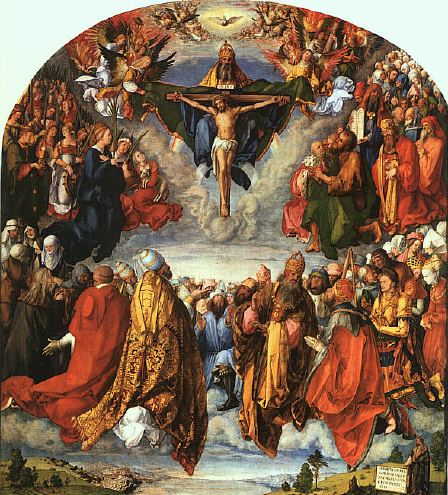
A prayerful and more reflective preparation for the celebration of the Feasts of All Saints and All Souls provides us with a very different experience of this season. These days, if lived according to the mind and heart of the Catholic Church, are a most instructive and tangible opportunity for both authentic catechesis on death and resurrection and the reverent liturgical celebration of it.
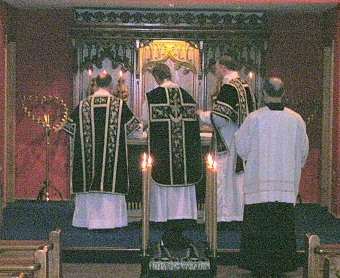
The teaching on praying for the holy souls in purgatory throughout this month (with special emphasis on the indulgences which can be gained in the first 8 days by praying in a cemetery) also affirms this truth.
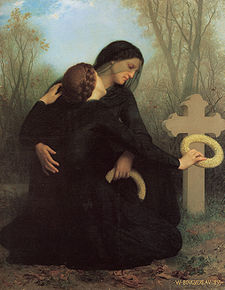 Â
 That word reverence is another key to a healthy understanding. Death, like human sexuality, needs to be handled with a sense of reverential awe and humility before its mystery.
It is difficult to see how dressing up as Satan and his minions, daubing fake blood on windows and cars or trawling around houses on 'trick or treat' missions can inculcate any sense of love of neighbour and respect for the dead; much less love for the Blessed Trinity, the Person of Jesus Christ, or our own human dignity.
There are many lapsed Catholics who did not take their children to receive the Body and Blood of Christ at Mass on Sunday but who did drag their little children round cold and dark streets dressed in ghoulish costumes in search of sweets wrapped in devilish wrappers...
As Catholics we also believe in the sign-value of matter. We place beautiful sacred images in our homes and light candles before them. We attend Holy Mass in dignified clothing and comport ourselves becomingly as in the day (Romans 13:13).
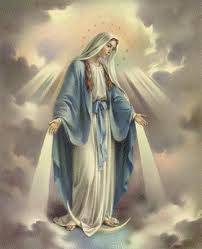
What sign does it give to dress as Satan, Freddy Krueger or a witch? What does it show to carry a demonic looking lantern? Don't we also believe that external acts flow from the interior life of the heart?
Some will say we are against fun or have a Victorian attitude. On the other hand we studied with an African nun some years ago who trained as a professional catechist. She was aghast at the naivete of Western people who dressed up as demonic characters at Halloween because her cultural background had given her a profound understanding of this sign-value; to dress as a demon or a witch was considered as a means of attracting demons by giving honour to them...
Is it really the technological society which has become more advanced?Â

Although Christians may have reinterpreted the practices of Halloween, in order to use them as catechetical tools or celebrations of elements of the Christian mystery, the pre-Christian origins of many of these practices are very dubious and returning to the fore in our era; a fact underscored by the BBC's fawning coverage of druidic practices at Stonehenge. Perhaps it is time for us to reconsider which aspects of these traditions we ought to keep and which to jettison. Although exact details vary according to which source is consulted there are a few constants:-
1. Trick or treating originated in druidic culture and involved providing a treat for druid priests, their followers and evil spirits in order to avoid being tricked; which could involve spiritual or physical violence (not excluding human sacrifice).
2. Dressing up as evil spirits had to do with protection from the evil spirits which Samhein, the dark lord of death, was supposed to gather to himself on October 31st. The people were taught, by druid priests, that dressing up as demons would protect them from being attacked by real demons who were abroad that night. Druid priests also used to offer burned sacrifices of animals and even humans to appease Samhein. Â
3. The carved pumpkin Jack-o-Lantern with its gruesome flickering face had to do with preventing evil spirits from harming one's home by giving a tangible sign of sympathy with them.
Perhaps the time has come for Catholics to rethink their approach to Halloween. It does not seem Puritanical to us to put some distance between oneself and the practices which originated in evil and, whatever meaning has been put on them by Christians down the centuries, are returning to their pre-Christian state at alarming levels though a growing Occult sub-culture.
By all means make of these feast days a great celebration. And please do teach about death and dying; but do this in a manner which uses the opportunity to impart sound catechesis on human dignity, love of neighbour and the reality of angels and demons in spiritual warfare. Above and through all focus on the victory won in Jesus Christ and imparted through His Holy Church. Â
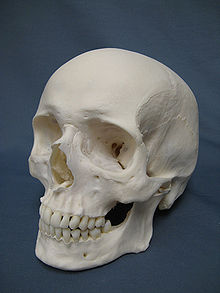 Â
 For remember that thou art dust and to dust thou shalt return.



